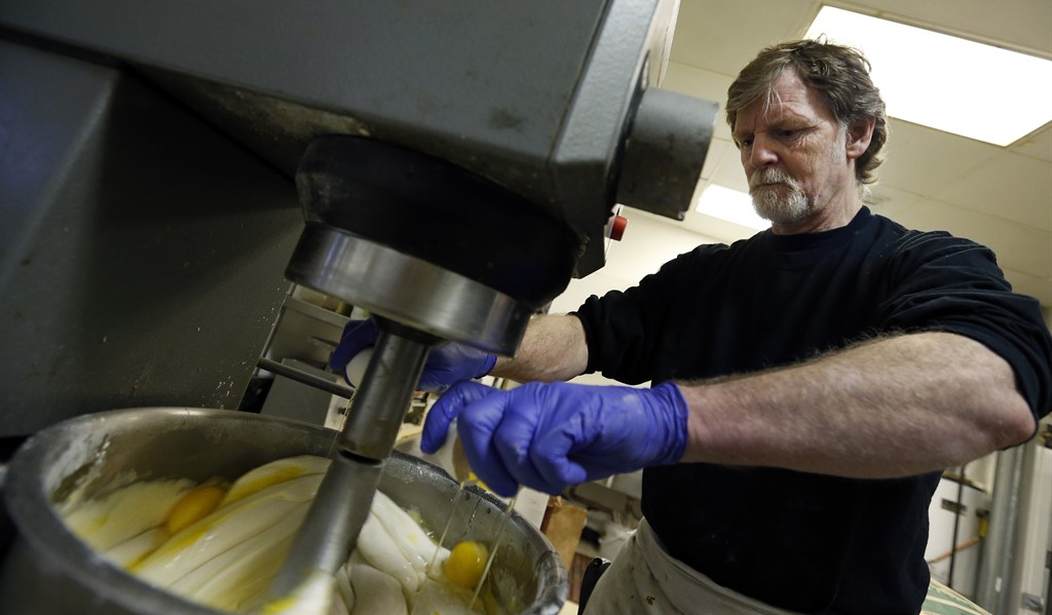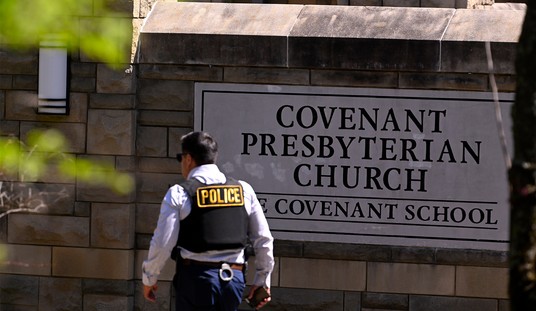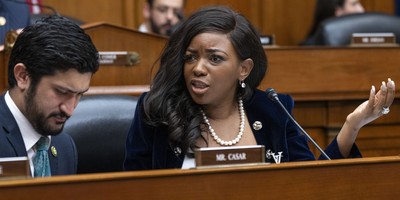Liberals’ outrage at the failure of the Supreme Court to excoriate Christian bakery owner Jack Phillips last year for declining a request to create a wedding cake for a gay couple was palpable. Equally palpable was their enthusiastic support for Cracker Barrel’s decision earlier this month to refuse service to a man who said LGBTQ people should be put on trial and executed if convicted.
That is a problem. Here’s why.
If Jack Phillips is in the wrong for refusing to serve certain customers because doing would violate his beliefs, then Cracker Barrel is in the wrong for doing the same thing.
If the reasoning holds for one, it should hold for both.
Grayson Fritts, an on-his-way-out detective and pastor of the All Scripture Baptist Church in Knoxville, Tennessee, preached at least two sermons in which he suggested the government should round up LGBTQ people, put them on trial, and execute them if convicted.
He called LGBTQ people “freaks,” said they were committing a “capital crime,” and preached that they are “worthy of death,” according to multiple media reports.
At issue here is not whether Fritts espouses and promotes heinous, anti-Christian theological beliefs that most people, right and left, understandably find abhorrent.
The issue is whether it is permissible in this country for businesses to deny service to anyone if doing so violates an owner’s closely held beliefs.
In Phillips’ situation at Masterpiece Cakeshop, his closely held belief was that it is wrong to use his artistic talents to promote gay marriage. In Cracker Barrel’s case, the closely held belief is that it is wrong (not to mention bad for business) to knowingly provide space and service to hateful people who advocate for others’ death.
Recommended
Unfortunately, the Supreme Court’s decision on the Phillips case is of no help.
The high court ducked providing a direct answer on whether businesses can legally opt out of providing a product/service when doing so would represent an affront to their beliefs. Instead, their ruling addressed a bureaucratic hiccup. The high court ruled that the Colorado Civil Rights Commission discriminated against Phillips because of his Christian faith.
Since SCOTUS chickened out on getting to the heart of the matter, the legality of Cracker Barrel’s decision seems tenuous.
Fair or not, if he chose to pursue it, Fritts could well make a reasonable case for Cracker Barrel having violated his civil rights.
In a statement posted on Twitter, Cracker Barrel said they “disagree strongly with [Fritts’ and All Scripture Baptist’s] statements of hate and divisiveness” and that they had “advised All Scripture Baptist that their event will not be allowed at Cracker Barrel.”
“We serve everyone who walks through our doors with genuine hospitality, not hate, and require all guests to do the same,” the statement concluded.
As ugly as Fritts’ hateful, divisive statements are, they stem from his warped version of religion.
Religion—like race, color, creed, national origin or ancestry, sex, age, physical or mental disability, veteran status, genetic information, and citizenship—is a federally-protected class.
Cracker Barrel is between a rock and a hard place.
If they allow Fritts’ group to have an event there, they risk losing the business of countless people who would be justifiably offended by that decision. If they expressly disallow it, they might be sued by Fritts or his church.
A restaurant is a place of public accommodation. As such, they are prohibited from arbitrarily or unevenly discriminating against members of a protected class.
Fritts might be able to make a case that Cracker Barrel’s decision, however ethical, was applied arbitrarily and unevenly. Had Fritts or his group eaten there in the past without issue? Had other groups espousing inarguably hateful thoughts held events there? Is Cracker Barrel in the regular practice of examining diners’ religious beliefs and social media history prior to agreeing to serve them?
Both the Cracker Barrel and the Masterpiece Cakeshop situations are sticky wickets.
These are the thorny issues we face as we struggle with just how far our First Amendment freedoms and civil rights extend—and which one trumps the other when push comes to shove.
Where do Fritts’ right to freedom from discrimination stop and Cracker Barrel’s right to refuse to violate their corporate ethical standards by serving him begin?
This situation is especially troublesome for liberals who, by and large, believe that Jack Phillips illegally discriminated against a gay couple by choosing not to use his artistic skills to create a custom wedding cake for them. Notably, he did offer off-the-shelf cakes to everyone, regardless of sexual orientation.
It is a stretch to call grits and biscuits an artistic expression, but the core of the argument is unchanged.
If Cracker Barrel is in the right for choosing not to serve an individual when doing so violates their closely-held beliefs, then Jack Phillips was in the right for doing the same thing.
So, which is it, America? Do business owners have a right to decline service if doing so violates their closely-held beliefs or not?
























Join the conversation as a VIP Member